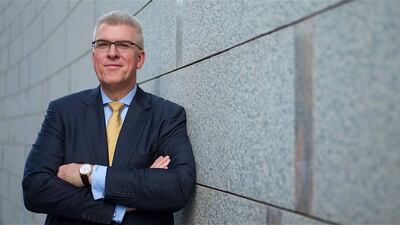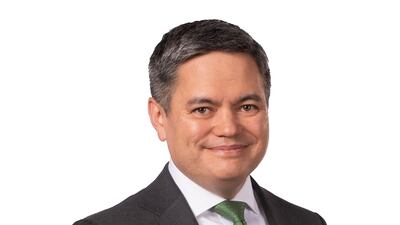The board of directors of the Dubai Financial Services Authority, the regulator of the emirate’s financial services free zone, appointed Christopher Calabia as its new chief executive.
He will succeed Bryan Stirewalt from October 1, the regulator said on Tuesday.
Mr Calabia has a 30-year career in financial regulation, with experience in various public and not-for-profit sector roles.
An expert in banking supervision, he was previously responsible for improving supervisory effectiveness at the Federal Reserve Bank of New York, where he held a variety of policy and supervision roles.
“The DFSA plays a crucial role as the independent financial regulator of the DIFC [the Dubai International Financial Centre]. As we stand at the cusp of great economic change, we are looking to further build on regulatory best practices and encourage the development of innovative new solutions for markets and investors,” said Fadel Al Ali, chairman of the DFSA.
“Chris’s experience, driving innovation in complex environments while maintaining the stability and integrity of financial systems, will further strengthen the DIFC’s standing as a global financial hub.”
The DFSA is the independent regulator of financial services conducted in and from the DIFC. Its regulatory mandate covers asset management, banking and credit services, securities, collective investment funds, custody and trust services, commodities futures trading and Islamic finance.
It also has oversight of insurers, crowdfunding platforms, money services, an international equities exchange and an international commodities derivatives exchange within Dubai’s financial centre.
Mr Calabia joins the DFSA from a senior advisory position at the Bill & Melinda Gates Foundation, where he promoted regulations that enable digital financial inclusion.
As part of his role, he advocated policy, technology and data innovations to support supervisors and strengthen the safety, soundness and integrity of financial systems in developing countries, the regulator said.

The outgoing chief executive, Mr Stirewalt, played an “instrumental role in maintaining the DFSA’s reputation as a global regulator, particularly through a challenging period”, Mr Al Ali said.
The DFSA imposed $4.5 million worth of fines against private equity firm Al Masah Capital and banned three people that ran the company from offering financial services out of the DIFC this year.
The case involved complicated structures in which investors bought shares in companies that then purchased shares in other businesses.
The DFSA also fined Ashish Dave, former chief financial officer of the Abraaj Group, $1.7m for his part in the downfall of the private equity company. It also prohibited Mr Dave from "performing any function" in financial services within or from the DIFC.
The regulator had already imposed a fine of $314.6m against Abraaj Group in 2019.
“Enforcement actions can bring strength to the financial sector to show that there are rules and we take those rules seriously,” Mr Stirewalt told The National in an earlier interview.
“This should have a positive impact on Dubai’s standing as a financial centre. People should know that in a regulated environment, we take rules seriously. We will treat breaches of those rules in a serious manner. And that may include penalties for those who caused the violations.”


